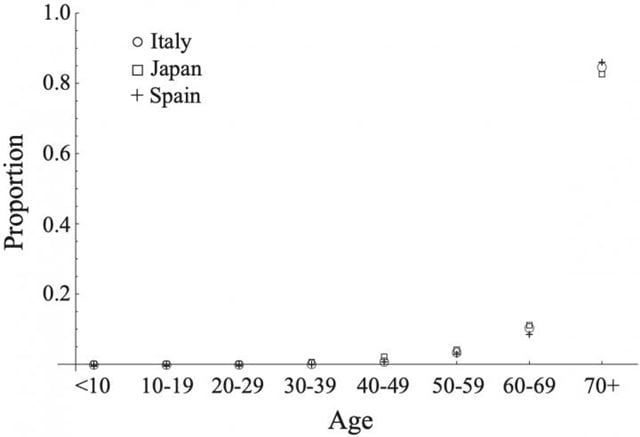- The elderly have been disproportionately affected by the Covid-19 pandemic
- Global data show a higher risk of severe disease and higher death rates among older age groups
- Delayed immune responses may be contributing to higher Covid-19 mortality rates among the elderly
Scientists from Hokkaido University, Japan, have discovered that the age of an individual does not indicate how likely they are to develop Covid-19, the disease caused by SARS-CoV-2.
However, three factors are age-dependent: development of symptoms, progression of the disease, and mortality.
These results are based on the work of a team of scientists who used mathematical modelling to study Covid-19 susceptibility in patients from Japan, Spain, and Italy. Their results were published in the journal Scientific Reports this month.
Mortality rate across three countries
The three countries were chosen based on well-recorded, publicly available data, the researchers stated in a news release by the university.
The data revealed that, as of May 2020, the mortality rate (number of deaths per 100 000) was 382.3 for Italy, 507.2 for Spain and 13.2 for Japan.
In spite of the wide disparity in mortality rates, the researchers explained that the age distribution of mortality (the proportional number of deaths per age group) was similar for these countries.
When developing a mathematical model to calculate Covid-19 susceptibility in each age group under different conditions, the team also considered different factors, including varying restriction levels in the three countries.
"Although we cannot fully reject the existence of age-dependency in [Covid-19] susceptibility, our results suggest that it does not largely depend on age, but rather that age-dependency in severity highly contributes to the formation of the observed age distribution in mortality," the researchers wrote, adding that further investigations looking into this topic were required to better understand this link.
Why are the elderly disproportionately affected?
Several studies attempted to answer this question. One study, published in the Journal of Molecular and Cellular Cardiology, suggested that it may be due to the fact that our heart muscle cells changed with age.
Researchers of another study published in May, also reported that a group of tiny RNA that would usually attack SARS-CoV-2 as soon as it tried to infect the body, diminished with age and chronic health problems.
And, according to a recent study published in the open-access journal PLOS Biology, delayed immune responses may also be a key driver behind higher Covid-19 mortality rates among the elderly.
READ | Study sheds light on why Covid-19 hits elderly hardest
READ | Covid-19: More reasons why men and the elderly are hit harder
READ | New research finds clues to why the elderly are more susceptible to Covid-19
Image: Getty/Jackyenjoyphotography




 Publications
Publications
 Partners
Partners












